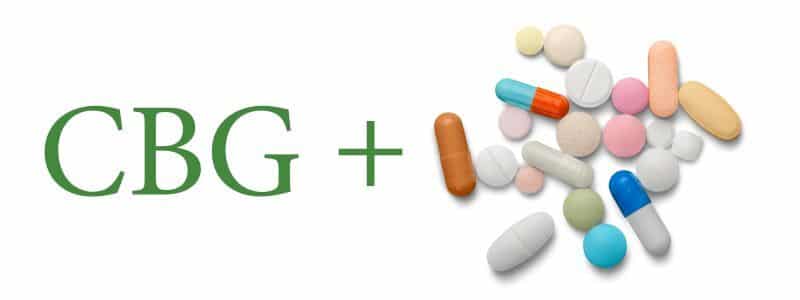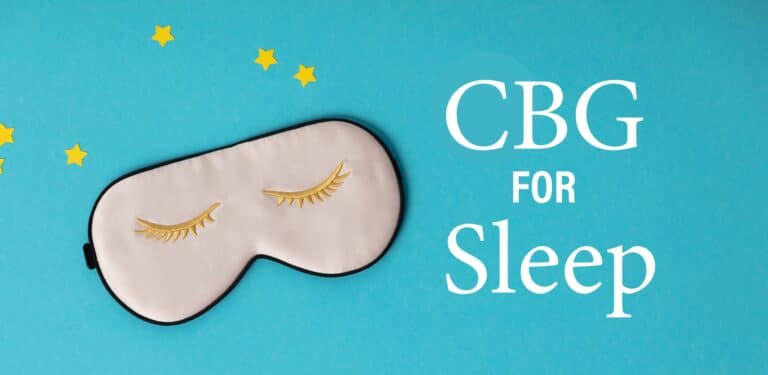How CBG (Cannabigerol) Interacts with Other Medications
Posted on June 15th, 2023 to CBG by Healer Staff Writer

Cannabis has been used to target a collection of human ailments for centuries. However, we have only recently begun to explore the individual components in the plant, such as CBG or cannabigerol.
Cannabigerol is a non-intoxicating cannabinoid that has gained much attention for its beneficial properties. And, this particular cannabinoid may be highly effective for issues with occasional nerve discomfort, nervousness, and sleeplessness*. If you plan to add something like CBG oil drops or CBG capsules to your wellness plans, you may be wondering, can CBG interfere with medication? Or, are there CBG side effects to consider? Find out more below.
First, How Does CBG Make You Feel?
CBG tends to be more relaxing or capable of inducing a sense of calm than the cannabinoid CBD (cannabidiol). Further, you may notice CBG seems to target physical nerve discomfort better than CBD, and it may even be more effective for discomfort at lower doses. Unlike cannabinoids like THC, cannabigerol does not cause any level of intoxication. Therefore, you can achieve relief and maintain a clear psychological state.
Can CBG Interfere with Medication?
In terms of available research, CBG is in its infancy stages. Therefore, any time you are taking another medication, it is important to consider potential CBG interaction with those drugs and talk to your doctor. CBD has been shown to interact with some drugs, such as benzodiazepines and antidepressants. Therefore, it can be speculated that CBG interactions are also possible.
For example, CBG interaction with with blood pressure medications, including ACE-inhibitors like lisinopril, beta-blocker like metoprolol, and calcium channel blockers like diltiazem (a medication for high blood pressure) is possible because preliminary studies have shown CBG to lower blood pressure in animal studies. Therefore, concurrent dosages of CBG and medication for high blood pressure could cause blood pressure to drop too low.
How CBG Interacts with Medication
Cannabinoids, in general, may affect how some drugs are metabolized, which could accentuate or lessen the effects of the drug taken. CBG interacts with the body uniquely compared to CBD. For example, CBG stimulates PPAR𝛾 receptors, which influence the body. Likewise, CBG stimulates ɑ-2 adrenoceptor, which is involved in the body’s fight-or-flight response to stress. However, it is important to remember, different methods of consumption may alter the likelihood of CBG–drug interaction.
Many herb-drug interactions occur due to effects on the CYP450 enzymes, the machinery our bodies use to break down drugs. CBG and CBGA have been shown to inhibit the activity of CYP2C9, and to a lesser extent, CBG inhibits CYP1A2, CYP2B6, and CYP2C19. The CYP2C9 enzyme, also inhibited by other cannabinoids like CBD, CBDA, and THCA, is an important one to consider because many drugs share this pathway. Some examples include losartan, phenytoin, tamoxifen, ibuprofen and several other NSAIDs, warfarin, and glipizide. This means that taking CBG in combination with these drugs could increase their blood levels in the body, creating a stronger-than-anticipated effect.
Interactions with CBG Topicals vs CBG Oil or CBG Capsules
Topical CBG products are processed differently by the body compared to ingested CBG capsules or CBG oil. Therefore, interactions may be less likely if you are simply using a topical product that contains CBG, especially if you are only using small amounts of the product. Nevertheless, it is important to discuss your plans to use cannabinoid-based products with your doctor to ensure the product is safe to use.
Continue to Learn About Phytocannabinoids with Healer
CBG is an impressive cannabinoid with a great deal of beneficial potential. However, it is always important to make sure your safety is a top priority. Find out how to find the best CBG oil products and how much CBG oil you should take from Healer.


